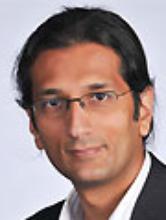Academic Keynote: Professor Awais Rashid |
 |
Secure software architectures for a hyperconnected world: Game changer or pipe dream?
The world is experiencing a massive growth in connected cyber-physical systems. Innovations such as smart cities, Internet of Things (IoT), body-
area networks, smart grids and wearable sensors mean that future environments will be hyper-connected, highly open and regularly collect, process or disseminate massive amounts of data. It is not difficult to envisage large-scale deployments with hundreds of thousands of nodes that are, in turn, used by a large number of stakeholders to provide a multitude of services. Such shared cyber-physical infrastructures will remain in operation for a long time (potentially decades) and the physical composition, the services provided and the stakeholders involved will change with time. Software is at the heart of these critical systems that will underpin our society for the foreseeable future. What is the role of software architecture in these emerging hyperconnected environments? In this talk, I will discuss this very question and the challenges of architecting secure software systems when faced with this scale, longevity and dynamicity.
Awais Rashid is Professor of Cyber Security at the University of Bristol, a Fellow of the Alan Turing Institute and Director of the EPSRC Centre for Doctoral Training in Trust, Identity, Privacy and Security in Large-scale Infrastructures. His research spans software engineering and cyber security - in particular novel techniques to improve the security and resilience of infrastructures underpinning society. He leads projects as part of the UK Research Institute on Trustworthy, Interconnected, Cyber-Physical Systems (RITICS) and the UK Research Institute on Science of Cyber Security (RISCS). He co-leads the Security and Safety theme within the UK Hub on Cyber Security of Internet of Things (PETRAS) and heads a major international effort on developing a Cyber Security Body of Knowledge (CyBOK) to provide interdisciplinary foundations for education and training programmes.
